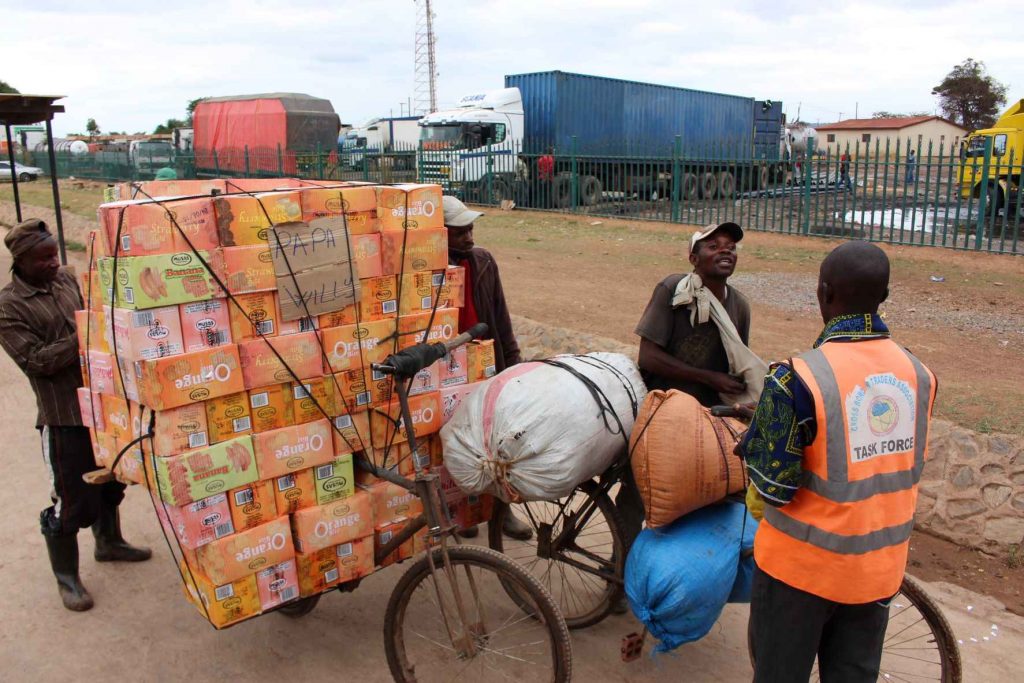
COMESA has conducted a study, which reviewed Member States policies related to the formalisation of the informal economy, focusing on informal trade. The study focused on the drivers of informality, the impacts of informality on the economy, including on government revenue and on productivity. It also identified the policies that Member States have instituted to address informality.
The study is part of the implementation of the Small-Scale Cross Border Trade Initiative (SSCBTI) funded under the 11th European Development Fund (11th EDF). This project is intended to increase formal small-scale cross-border trade flows in the COMESA/tripartite region, leading to higher revenue collection for governments at the borders as well as increased security and higher incomes for small-scale cross-border traders.
The study report was presented to Member States for validation in a virtual meeting on 7 October 2021. It was attended by senior government representatives from the ministries responsible for trade, finance, gender, small and medium enterprises as well as immigration, customs and other relevant border level representatives from the countries covered by the SSCBT project: D R Congo, Ethiopia, Kenya, Malawi, Zambia, and Zimbabwe.
According to the study conducted by a consultant, Dr Evarist Mugisa, all the seven Member States, including Tanzania, have a sizeable informal economy, serving as a source of livelihoods. However, the size of the informal economy was not clear due to the lack of reliable data. Estimates suggest it exceeds the official economic activity.
“An important component of the informal economies of these countries is Informal Cross-Border Trade (ICBT), which involves small scale traders who carry goods across borders evading all regulatory requirements,” Dr Mugisa observed. “The immediate impact of this is that governments do not receive the tax revenues on these transactions. ICBT also distorts the trade policy in these countries.”
The proliferation of informality in these countries is driven by a wide range of factors, including poverty, a restrictive business environment, the failure of government policies to translate into development and create decent employment opportunities in the formal sector, and the poor performance of the economies, among others.
The study also found that challenges faced by ICB traders vary; but they include burdensome customs and border procedures, poor or lack of border infrastructure (storage facilities or accommodation, poor transport infrastructure, etc), lack of understanding of the trade formalities and procedures due to illiteracy and lack of information.
In all the countries targeted, the study found that trade policies are silent about ICBT and therefore not mainstreamed in national policies, plans and strategies.
Among the key recommendations in the study were: to offer technical assistance and quality support services to informal traders and build greater trust between the private sector and border agencies; promote broad regulatory and administrative reforms; simplify official administration for businesses and tax administration and rationalization of business registration and licensing regimes.
The study also recommended that governments consider reducing the cost of trading formally and enhance the efficiency of border controls to improve compliance with existing trade-related regulations and addressing the implementation challenges of the COMESA Simplified Trade Regime (STR).
Following the study, COMESA Secretariat will engage the targeted Member States individually and collectively to identify activities for implementation.




